20 start with P start with P
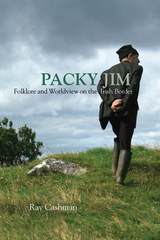
Ray Cashman, who has been interviewing McGrath for more than fifteen years, demonstrates how Packy Jim embellishes daily conversation with stories of ghosts and fairies, heroic outlaws and hateful landlords. Such folklore is a boundless resource that he uses to come to grips with the past and present, this world and the next. His stories reveal an intricate worldview that is both idiosyncratic and shared—a testament to individual intelligence and talent, and a window into Irish vernacular culture.
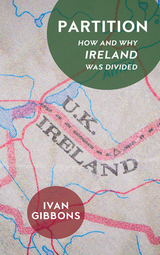
The Partition of Ireland in 1921, which established Northern Ireland and saw it incorporated into the United Kingdom, sparked immediate civil war and a century of unrest. Today, the Partition remains the single most contentious issue in Irish politics, but its origins—how and why the British divided the island—remain obscured by decades of ensuing struggle.
Cutting through the partisan divide, Partition takes readers back to the first days of the twentieth century to uncover the concerns at the heart of the original conflict. Drawing on extensive primary research, Ivan Gibbons reveals how the idea to divide Ireland came about and gained popular support as well as why its implementation proved so controversial and left a century of troubles in its wake.
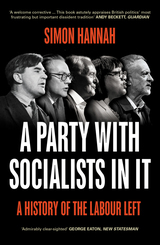
A smart and succinct history of the Labour left
*A Guardian Book of the Day*
The defeat of socialist firebrand Jeremy Corbyn as Labour Leader in 2019 confirmed Tony Benn's famous retort 'the Labour party has never been a socialist party, although there have always been socialists in it.'
For over a hundred years, the British Labour Party has been a bastion for working-class organization and struggle. However, has it ever truly been on the side of the workers? Where do its interests really lie? And can we rely on it to provide a barrier against right-wing forces?
Simon Hannah's smart and succinct history of the Labour left guides us through the twists and turns of the party, from the Bevanite movement and the celebrated government of Clement Attlee, through the emergence of a New Left in the 1970s and the Blairism of the 1990s, to Corbyn's defeat and his replacement by Keir Starmer.
This new edition is updated throughout, with a new final chapter and conclusion bringing the story up to date.
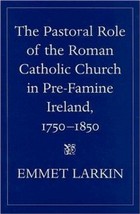
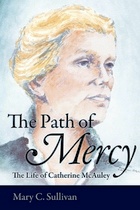

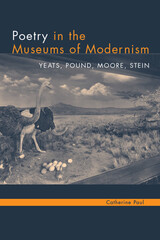
Although critics have attested to the importance of the visual arts to literary modernists and have begun to explore the relationships between literary production and social institutions, before now no one has examined the particular institutions in which modernist poets found the artworks, specimens, and other artifacts that inspired their literary innovations. Catherine Paul's book offers the reader a fresh encounter with modernism that will interest literary and art historians, literary theorists, critics, and scholars in cultural studies and museum studies.
Catherine Paul is Associate Professor of English, Clemson University.

Kieran Allen breaks this mould, assessing the founder of the Irish Marxist movement ideas from a revolutionary socialist perspective. Allen considers the strengths and weaknesses of Connolly’s revolutionary strategy, the effect of his commitment to international socialism on his nationalist loyalties and arguing that, ultimately, Connolly's enduring relevance derives from his anti-imperialism. Any socialist movement today ignores this book at its peril.
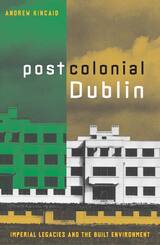
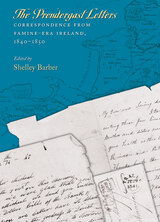
Most important, the letters offer a rare contemporary, firsthand account of Ireland's an Gorta Mor, the Great Famine that began with the failure of the potato crop in 1845. Letters written in the months and years following the announcement of the first crop failure provide insight into not only the sufferings of one family but also the response of the community and nation as this crisis transformed Ireland.
James and Elizabeth Prendergast were the parents of six children. Their letters from Milltown, County Kerry, dictated to a scrivener, were posted to sons Thomas and Jeffrey and daughter Julia Riordan and her husband Cornelius, all of whom had emigrated in search of employment to Boston, Massachusetts—a city that would itself be transformed by the famine-era influx of Irish immigrants.
In addition to transcriptions of the forty-eight letters in the collection, this volume includes contextual essays by historian Ruth-Ann Harris and genealogist Marie Daly. The evidence of the letters themselves, along with the contributions of Harris and Daly, demonstrate the ways in which the family of James Prendergast was at once exceptional and typical.


The Harvard Celtic Colloquium provides a small but international audience for presentations by scholars from all ranks of scholarship and all areas of Celtic Studies. Among the topics covered are the archaeology, history, culture, linguistics, literatures, politics, religion, and social structures of the countries and regions in which Celtic languages are, or were, spoken, as well as their extended influence, from prehistory to the present. The broad range of the conference is reflected in the content of its published proceedings, which will interest both students newly attracted to Celtic Studies and senior scholars in the field.
PHCC, 33 features the annual John V. Kelleher Lecture for 2013, given by Thomas Owen Clancy, Professor of Celtic at the University of Glasgow, Scotland. Clancy discusses connections between Scottish saints’ names and cults and the onomastics of settlements and topographical features gathered and investigated in preparation for a digital atlas project, “Commemoration of Saints in Scottish Place Names.” In addition, PHCC, 33 includes contributions in the areas of Irish, Welsh, and Scottish history, Irish and Welsh literature and poetry, and Irish ecclesiastical learning.

The Harvard Celtic Colloquium provides a small but international audience for presentations by scholars from all ranks of scholarship and all areas of Celtic Studies. Among the topics covered are the archaeology, history, culture, linguistics, literatures, politics, religion, and social structures of the countries and regions in which Celtic languages are, or were, spoken, and their extended influence, from prehistory to the present. The broad range of the conference is reflected in the content of its published proceedings, which will interest students newly attracted to Celtic Studies as well as senior scholars in the field.
PHCC 34 includes the John V. Kelleher Lecture for 2014 given by Ann Parry Owen, “‘An audacious man of beautiful words’: Ieuan Gethin (c.1390–c.1470).” Several papers in this volume deal with the reflection of political forces and contemporary leaders in the early modern period in the literature of Ireland and Wales. Others consider the influence of Christian authors on Ireland as reflected in various surviving literary documents and tales. Of particular interest for the history of Celtic Studies are articles on early scholarship in the field, and Irish and Welsh vernacular authors who incorporated medieval literary motifs into their own work.

The Harvard Celtic Colloquium provides a small but international audience for presentations by scholars from all ranks of scholarship and all areas of Celtic Studies, the archaeology, history, culture, linguistics, literatures, politics, religion, and social structures of the countries and regions in which Celtic languages are or were spoken, and their extended influence, from prehistory to the present. The broad range of the conference is reflected in the content of its published proceedings, which will interest students newly attracted to Celtic Studies as well as senior scholars in the field.
PHCC, 35 includes the 2015 John V. Kelleher Lecture, “Whodunnit? Indirect Evidence in Early Irish Law,” given by Dr. Fergus Kelly of the School of Celtic Studies, Dublin Institute for Advanced Studies, Dublin, Ireland. Kelly is highly regarded for his command of the large and complex body of Irish legal literature and its social context. Other papers in this volume concern the social context and manuscript tradition of early Irish law; medieval Welsh and Irish literary, poetical, and hagiographical material; modern uses of medieval themes; modern Celtic languages, Irish, Welsh and Breton; and the considerations of using digital resources for Celtic Studies.


This volume of the Proceedings of the Harvard Celtic Colloquium offers a wide range of articles on topics across the field of Celtic Studies.
It includes the 2017 J. V. Kelleher lecture delivered by Paul Russell, Professor of Celtic, University of Cambridge, entitled “‘Mistakes of All Kinds’: The Glossography of Medieval Irish Literary Texts.” In this address Russell offers cogent analysis of this rarely addressed facet of medieval Irish codicology. The articles from other presentations at the Colloquium extend the focus on Celtic glossing into other areas of Celtic linguistics and literary studies. In addition, the volume includes articles on the medieval folkloric, religious, legal, and material culture of Celtic communities, some aspects of which persist into modernity. This volume exemplifies the broad range of topics and time periods characteristic of the Harvard Celtic Colloquium.

Proceedings of the Harvard Celtic Colloquium, 38 collects papers ranging widely on topics of the literary and material culture of the Celtic regions of Ireland, Wales, and Breton in the medieval and modern periods. Several articles concern the self-awareness of the literary elite in Ireland and Wales, whose members respected the traditional forms of their literature but used them to further contemporary purposes. For example, they introduce new references to foreign places and cultures, or use older topographical lore to describe and justify contemporary land use and settlement. Other articles review material culture as it is reflected in literary works of their respective periods and discuss how this in turn illuminates the attitudes of the authors and their intended readers. A number of contributions concern the grammatical structure and linguistic formation of the languages of Ireland, Wales, and Brittany, both early and modern.
The special lecture for the Harvard Celtic Colloquium this year was given by Dr. Aled Jones, Senior Lecturer in Welsh and Medieval Studies at Bangor University, Wales, comparing modern astrophysics to the plasticity of time in medieval Celtic literature, a thought-provoking consideration of congruences in modern and medieval conceptions of time and space. This volume also contains the 2018 Kelleher lecture given by Dr. William Gilles of the University of Edinburgh on a problematic early Scots-Gaelic text, the Harlaw Brosnachadh.
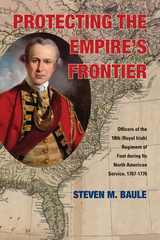
Protecting the Empire’s Frontier tells stories of the roughly eighty officers who served in the 18th (Royal Irish) Regiment of Foot, which served British interests in America during the crucial period from 1767 through 1776. The Royal Irish was one of the most wide-ranging regiments in America, with companies serving on the Illinois frontier, at Fort Pitt, and in Boston, New York, and Philadelphia, with some companies taken as far afield as Florida, Spanish Louisiana, and present-day Maine. When the regiment was returned to England in 1776, some of the officers remained in America on staff assignments. Others joined provincial regiments, and a few joined the American revolutionary army, taking up arms against their king and former colleagues.
Using a wide range of archival resources previously untapped by scholars, the text goes beyond just these officers’ service in the regiment and tells the story of the men who included governors, a college president, land speculators, physicians, and officers in many other British regular and provincial regiments. Included in these ranks were an Irishman who would serve in the U.S. Congress and as an American general at Yorktown; a landed aristocrat who represented Bath as a member of Parliament; and a naval surgeon on the ship transporting Benjamin Franklin to France. This is the history of the American Revolutionary period from a most gripping and everyday perspective.
An epilogue covers the Royal Irish’s history after returning to England and its part in defending against both the Franco-Spanish invasion attempt and the Gordon Rioters. With an essay on sources and a complete bibliography, this is a treat for professional and amateur historians alike.

This book analyses the underlying reasons behind the formation of the Provisional Irish Republican Army (IRA), its development, where this current in Irish republicanism is at present and its prospects for the future.
Tommy McKearney, a former IRA member who was part of the 1980 hunger strike, challenges the misconception that the Provisional IRA was only, or even wholly, about ending partition and uniting Ireland. He argues that while these objectives were always the core and headline demands of the organisation, opposition to the old Northern Ireland state was a major dynamic for the IRA’s armed campaign. As he explores the makeup and strategy of the IRA he is not uncritical, examining alternative options available to the movement at different periods, arguing that its inability to develop a clear socialist programme has limited its effectiveness and reach.
This authoritative and engaging history provides a fascinating insight into the workings and dynamics of a modern resistance movement.
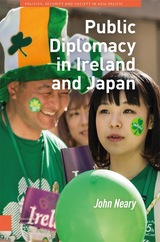
READERS
Browse our collection.
PUBLISHERS
See BiblioVault's publisher services.
STUDENT SERVICES
Files for college accessibility offices.
UChicago Accessibility Resources
home | accessibility | search | about | contact us
BiblioVault ® 2001 - 2024
The University of Chicago Press









